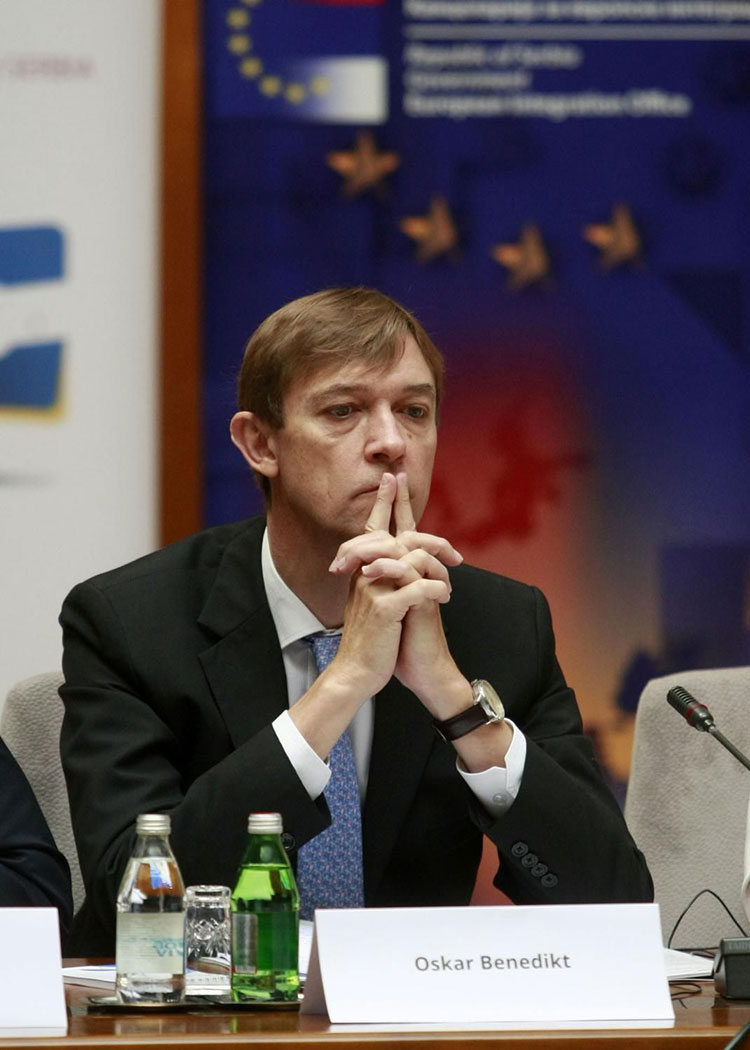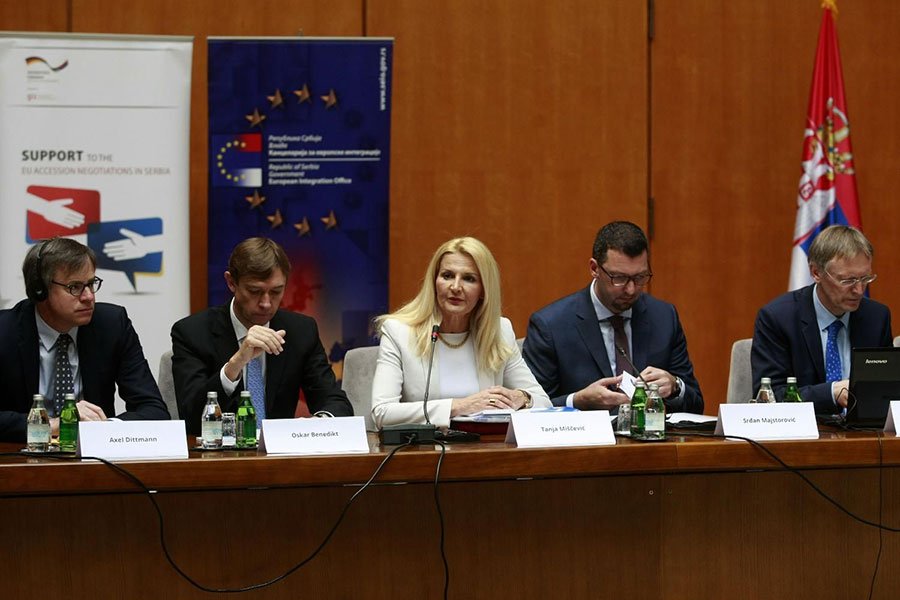Improving the rule of law will dictate the overall pace of progress in EU integration process of Serbia and other countries in the region on their respective EU membership paths,” said the participants in the conference EU Accession Negotiations: A New Context.

FoNet
“If there is a lack of progress in chapters 23 and 24, dealing with the rule of law, the overall pace of progress is slowed down,” said Acting Head of the EU Delegation in Belgrade Oskar Benedikt, adding that the Government of Serbia should put more focus on the rule law.
Benedikt said that the EU remained committed to enlargement. European leaders have made it clear that the EU door is open and that the speed of moving towards it is determined by the speed the EU aspiring countries are implementing their reforms, Benedikt noted.
Head of Serbia’s EU accession negotiating team Tanja Miscevic said that Belgrade was aware of the importance of the rule of law which permeated not only chapters 23 and 24, but virtually every other negotiating chapter.
Negotiating process does not belong exclusively to the executive arm, but the society as a whole, Tanja Miscevic said.
Speaking about the rule of law as the key element of EU accession negotiations, German Ambassador in Belgrade Axel Dittmann said that the judicial efficiency had improved but added that efforts should be stepped up as regards the independence of courts and prosecutors’ offices, fight against corruption, freedom of expression and media.
Former Head of Slovenian EU accession negotiation team Janez Potočnik said that the Union could not afford to admit institutionally weak countries.
There is scepticism in the EU about the enlargement, due to economic and refugee crises, but also due to corruption and poverty in the Western Balkans. Also, Potočnik said, unresolved border disputes in the region could pose a serious obstacle to accession.
He said that EU Member States and the European Commission should make concrete moves in order to support the region’s EU bid.




